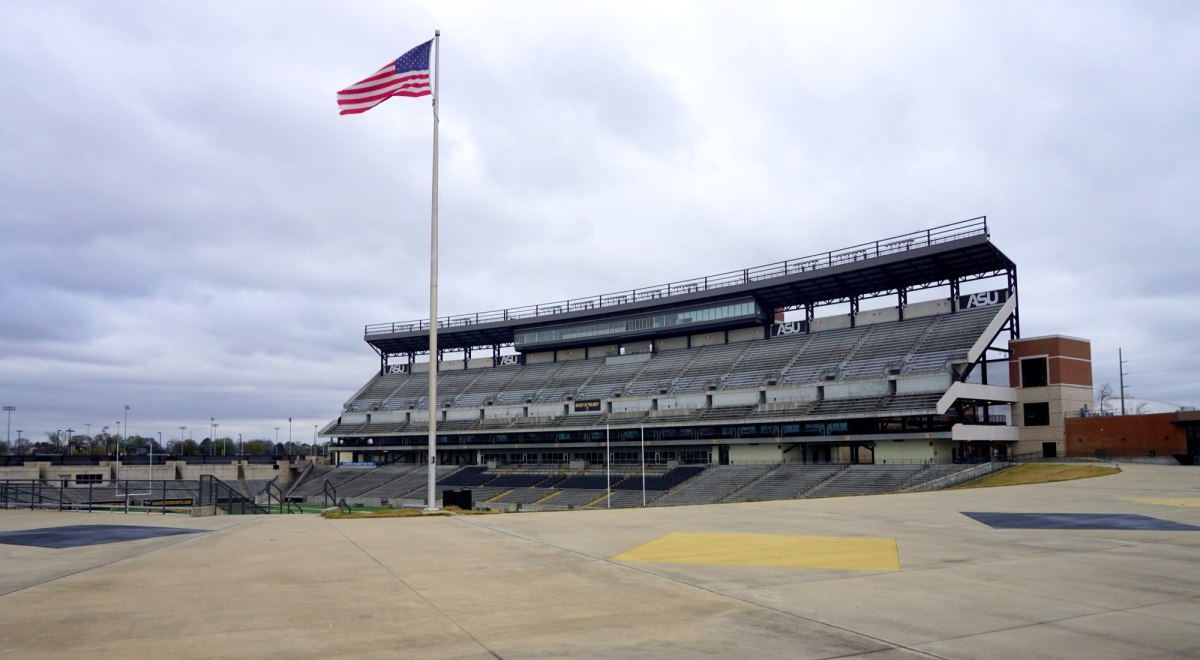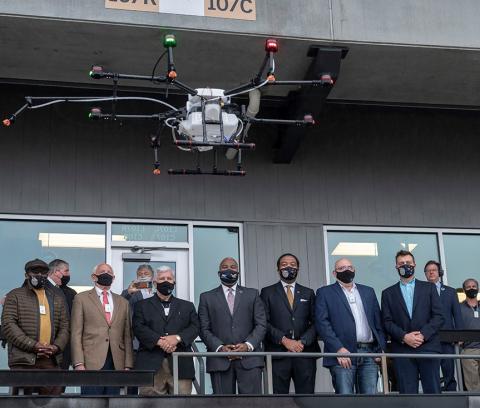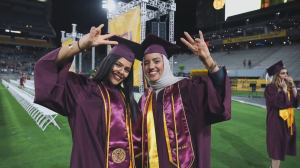Alabama State U. ‘first’ to use drones for disinfecting stadiums

As part of its efforts to prevent attendees of sporting events from contracting COVID-19, Alabama State University claimed this month it will become the first university to use drones to disinfect its stadiums and arenas.
The drones, made by Draganfly, will spray down seats and other surfaces in ASU’s football stadium with a non-toxic, organic sanitizer from Varigard. According to Varigard, its formula lasts for more than two hours and can “trap and kill” pathogens, including coronaviruses.
The university demonstrated the technology at its stadium following a news conference on Dec. 16, where ASU President Quinton Ross, Jr. said drones are an important part of the university’s strategy to limit the virus’ spread.
ASU has limited COVID-19 cases to approximately 2% of its 1,800 students living on campus this semester, he said.
“Draganfly’s technology is a part of our being able to keep those numbers down,” Ross told the conference, which was also attended by Alabama state Sen. Bobby Singleton, an ASU alumnus. “The proof is in the pudding. We show and prove that this technology it works and it’s something that everyone should consider, and I think that the sooner that all of them embrace using this new technology, the quicker we get to some sense of normalcy.”
ASU leaders said at the event they hope to deploy the drones for regular use at sporting events within the next few weeks.

(David Campbell / Alabama State University)
Alabama State isn’t the only place to use drones during the pandemic. Drones have also been used by cities in China to disinfect surfaces and to monitor crowds to enforce social distancing guidelines. Researchers at the University of Illinois, meanwhile, have developed autonomous robots to help hospitals sanitize rooms.
ASU’s efforts to contain the coronavirus also include the use of infrared cameras and advanced image processing technology from Draganfly. During its fall semester, the university used the cameras to collect health data on the vital signs of students, staff and faculty on campus, including temperature, heart rate and respiratory rate. Since the camera systems’ installation in October, Ross said there has been a significant increase in adherence to the university’s social distancing protocols.
As universities work to return to normal campus operations and bring back more in-person classes for students, institutions are looking to new technologies to mitigate the spread of COVID-19, including safety apps, wastewater testing and COVID-19 testing kiosks.




